June 9, 2023 We’re proud to see these talented, passionate students receive their Ph.D.s and excited to see how they continue their work in accessibility. Alyssa Spomer, Ph.D. Mechanical Engineering Current: Clinical Scientist at Gillette Children’s Hospital, leading research in the Gillette Rehabilitation Department to improve healthcare outcomes for children with complex movement conditions. Elijah Kuska, Ph.D. Mechanical Engineering Plans: Elija will start as an assistant professor at the Colorado School of Mines in the Mechanical Engineering Department in January…
Category: Faculty Profiles
Faculty members of UW CREATE.
CREATE Ph.D. Student Emma McDonnell Wins Dennis Lang Award
June 6, 2023 Congratulations to Emma McDonnell on receiving a Dennis Lang Award from the UW Disability Studies program! McDonnell, a fourth year Ph.D. candidate in Human Centered Design & Engineering, is advised by CREATE associate director Leah Findlater. McDonnell’s research focuses on accessible communication technologies and explores how these tools could be designed to engage non-disabled people in making their communication approaches more accessible. She has studied how real-time captioning is used during videoconferencing and her current work is…
Jacob O. Wobbrock awarded Ten-Year Technical Impact Award
January 5, 2023 The Association for Computing Machinery (ACM) has honored CREATE Co-Director Jacob O. Wobbrock and colleagues with a 10-year lasting impact award for their groundbreaking work improving how computers recognize stroke gestures. Wobbrock, a professor in the Information School, and co-authors Radu-Daniel Vatavu and Lisa Anthony were presented with the 2022 Ten Year Technical Impact Award in November at the ACM International Conference on Multimodal Interaction (ICMI). The award honors their 2012 paper titled Gestures as point clouds: A $P recognizer…
Wobbrock Co-leads ACM UIST Conference, Brings Accessibility to the Conversation
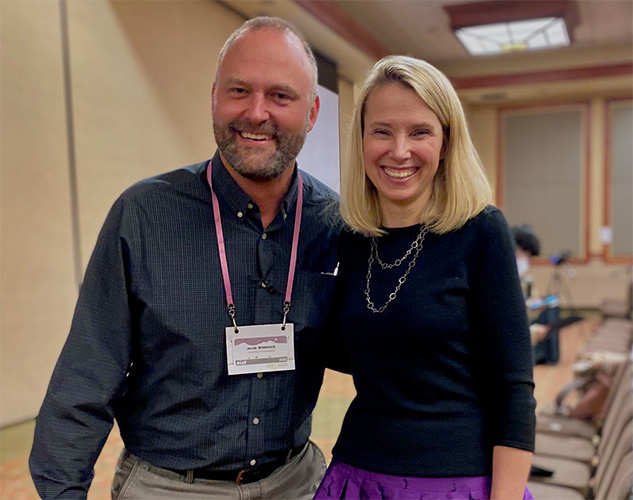
CREATE founding Co-Director Jacob O. Wobbrock served as General Co-Chair for ACM User Interface Software and Technology (UIST) 2022, held at the end of October. Nearly 500 people traveled to beautiful Bend, OR to share their latest innovations in user interface software and technology from fabrication and materials, to VR and AR, to interactive tools and interaction techniques. UIST showcased the very best inventive research in the field of human-computer interaction. “Attending UIST is like attending an exclusive preview of…
A Ph.D. Student’s Promising Research in Mobility in Cerebral Palsy
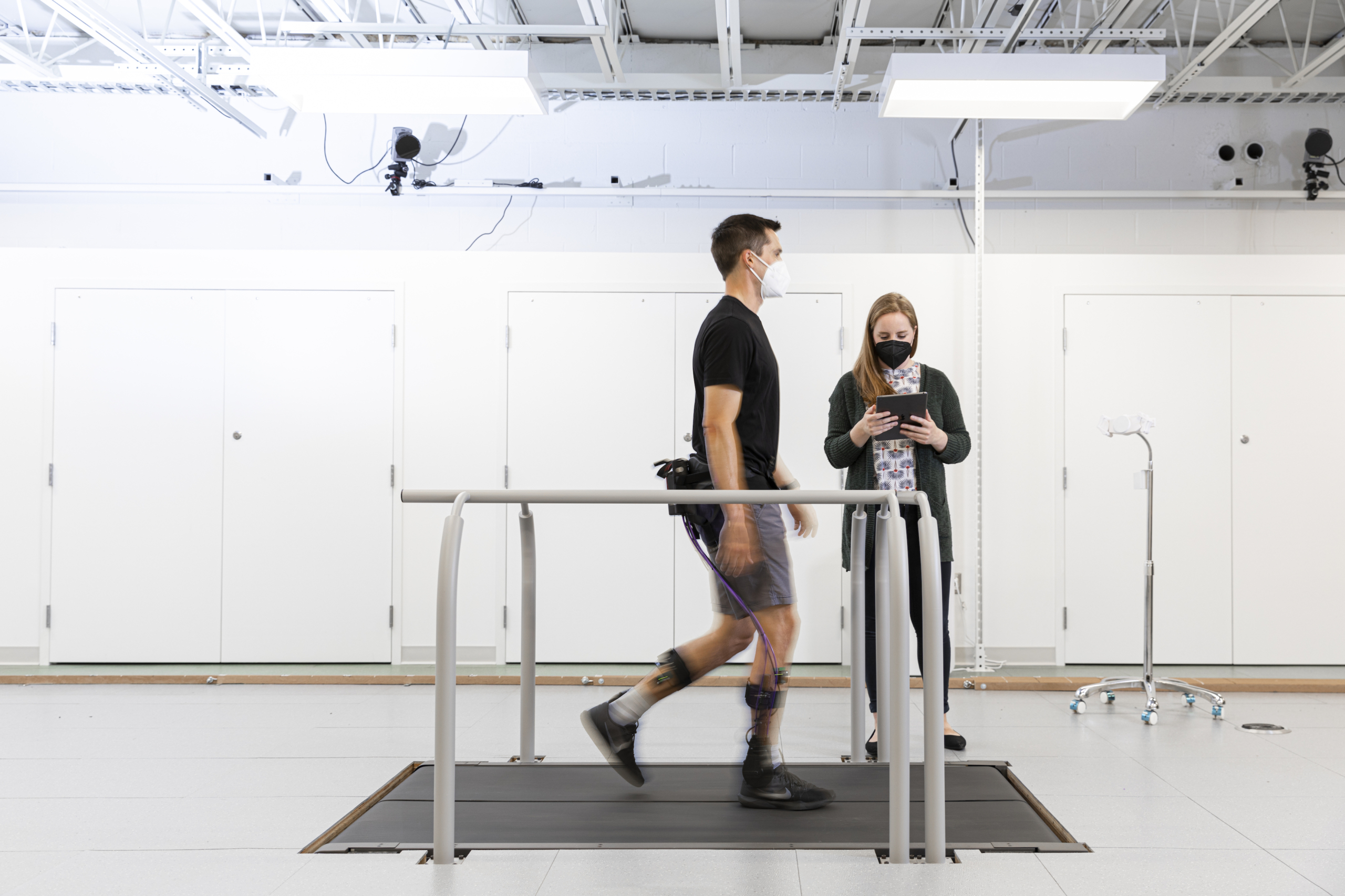
Whether she’s researching how biofeedback systems can guide gait training in children with cerebral palsy or leading toy adaptation events, Alyssa Spomer is committed to advancing accessible technology. A Ph.D. student in UW Mechanical Engineering (ME) and advised by CREATE Associate Director Kat Steele, Spomer is the student chair of CREATE-sponsored HuskyADAPT. Her studies have been multidisciplinary, spanning ME and rehabilitation medicine. She uses her engineering skills to understand the efficacy of using robotic devices to target and improve neuromuscular control during…
Increasing Data Equity Through Accessibility
Data equity can level the playing field for people with disabilities both in opening new employment opportunities and through access to information, while data inequity may amplify disability by disenfranchising people with disabilities. In response to the U.S. Science and Technology Policy Office’s request for information (RFI) better supporting intra- and extra-governmental collaboration around the production and use of equitable data, CREATE Co-director, Jennifer Mankoff co-authored a position statement with Frank Elavsky, Carnegie Mellon University and Arvind Satyanarayan, MIT Visualization…
Large-Scale Analysis Finds Many Mobile Apps Are Inaccessible
October 6, 2022 Mobile apps have become a key feature of everyday life, with apps for banking, work, entertainment, communication, transportation, and education, to name a few. But many apps remain inaccessible to people with disabilities who use screen readers or other assistive technologies. Any person who uses an assistive technology can describe negative experiences with apps that do not provide proper support. For example, screen readers unhelpfully announce “unlabeled button” when they encounter a screen widget without proper information…
CREATE + I-LABS: focus on access, mobility, and the brain
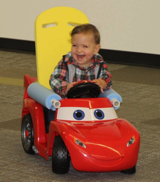
A new research and innovation partnership between CREATE and the UW Institute of Learning and Brain Sciences (I-LABS) focuses on access, mobility, and the brain, especially how early experiences with mobility technology impact brain development and learning outcomes.
Ga11y improves accessibility of automated GIFs for visually impaired users
August 3, 2022 Animated GIFs, prevalent in social media, texting platforms and websites, often lack adequate alt-text descriptions, resulting in inaccessible GIFs for blind or low-vision (BLV) users and the loss of meaning, context, and nuance in what they read. In an article published in the Proceedings of the ACM Conference on Human Factors in Computing Systems (CHI ’22), a research team led by CREATE Co-director Jacob O. Wobbrock has demonstrated a system called Ga11y (pronounced “galley”) for creating GIF…
VoxLens allows screen-reader users to interact with data visualizations
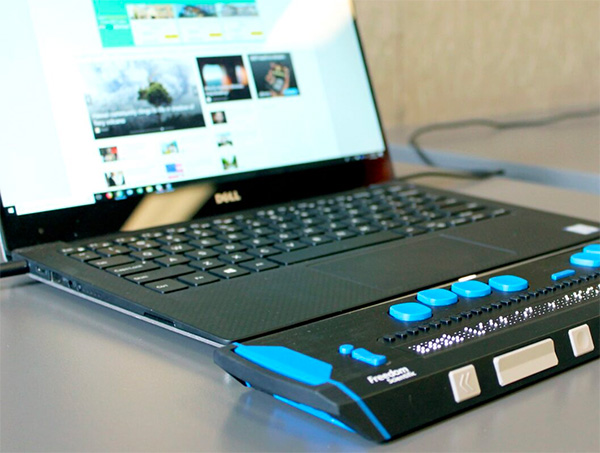
Working with screen-reader users, CREATE graduate student Ather Sharif and Co-Director Jacob O. Wobbrock, along with other UW researchers, have designed VoxLens, a JavaScript plugin that allows people to interact with visualizations. To implement VoxLens, visualization designers add just one line of code. Millions of Americans use screen readers for a variety of reasons, including complete or partial blindness, learning disabilities or motion sensitivity. But visually-oriented graphics often are not accessible to people who use screen readers. VoxLens lead author…
Jen Mankoff receives SIGCHI Social Impact Award
Congratulations to CREATE Co-Director Jennifer Mankoff! She has been awarded a 2022 Social Impact Award by SIGCHI, the special interest group of the Association for Computing Machinery (ACM) for professionals, academics and students interested in human-technology and human-computer interaction (HCI). Mankoff was cited for research focused on accessibility to give people the voice, tools and agency to advocate for themselves. “She strives to make change at both structural and individual levels. For example, her recent work on fabrication of accessible…
Heather Feldner ‘wrote the book’ on power mobility device for babies
CREATE Associate Director Heather Feldner has authored two guidebooks, instructing caregivers, researchers and clinicians how to introduce Permobil’s Explorer Mini to young children between the ages of 12 and 36 months. Permobil’s Explorer Mini is a new, lightweight, joystick-operated powered mobility device that provides opportunities for mobility, exploration, and play for children with disabilities at ages and stages that are more equitable compared to their peers without disabilities. Feldner and her co-authors have synthesized their own work and work from pioneers in the field, describing the benefits and impact of on-time access…
CREATE student Venkatesh Potluri is an Apple Scholar
Venkatesh Potluri has been selected as a 2022 Apple Scholar — a fellowship that supports cutting-edge machine learning researchers at the graduate and post-graduate level. A Ph.D. student in the Allen School, Potluri is advised by CREATE Co-Director Jennifer Mankoff in the Make4All Group. As an Apple Scholar, Potluri is recognized as an emerging leader in computer science and engineering and will receive funding to pursue his Ph.D., internship opportunities, and mentorship with an Apple researcher. Potluri’s research makes overlooked software…
Feldner and Harniss receive research poster award for work on allyship training in rehabilitation education
Heather Feldner and Mark Harniss team received a blue ribbon award as one of the top 3 posters for Social Responsibility at an American Physical Therapy Association meeting.
Richard Ladner named AAAS Fellow
Congratulations to CREATE Director for Education Richard Ladner on being named a Fellow of the American Association for the Advancement of Science (AAAS)! He is among 564 new fellows from around the world elected in 2021 for distinguished achievements in science and engineering. Ladner was recognized for his advocacy and inclusion efforts for people with disabilities in computer science and related fields. His work has included development of numerous tools to perform specific tasks, including translating textbook figures into formats…
CREATE Co-Director Jacob O. Wobbrock Named ACM Fellow
We congratulate CREATE Co-Director Jacob O. Wobbrock on being named an ACM Fellow by the Association for Computing Machinery for his contributions to human-computer interaction and accessible computing! Wobbrock’s research seeks to understand and improve people’s interactions with computers and information, especially for people with disabilities. He is the primary creator of ability-based design, which scrutinizes the ability assumptions embedded in technologies in an effort to create systems better matched to what people can do. CREATE profile Faculty page For this…
Findlater and co-authors receive 2020 Best Paper award for study of Voice Assistants by Older Adults
The Association for Computing Machinery announced the 2020 Best Paper Award goes to Use of Intelligent Voice Assistants by Older Adults with Low Technology Use, co-authored by CREATE associate director Leah Findlater, Alisha Pradhan and Amanda Lazar. The team conducted a 3-week field deployment of the Amazon Echo Dot in the homes of seven older adults to understand how older, infrequent users of technology perceive and use voice assistants. They observed consistent usage for finding health-related information, highlighting concerns about credibility of information…
Perkins School touts Blocks4All for blind and low vision students
The Perkins School for the Blind — one of the most famous schools for the blind in the world — is heavy into technology for their students. Recently they touted the Blocks4All app, paired with a Dash robot, as a tool to teach block coding to blind and low vision students. “The Blocks4All app is completely accessible on the iPad with VoiceOver and Dash carries out the commands, making it easy for students who are visually impaired to know if they…
Feldner and Steele’s ‘Reimagining Mobility’ series featured in The Daily
November 17, 2021 Collaboration and diverse perspectives and approaches are at the heart of CREATE’s mission to make technology accessible and make the world accessible though technology. One program developed by CREATE faculty looks at mobility solutions and ways to eliminate barriers. Hosted by CREATE associate directors Kat Steele and Heather Feldner, the Reimagining Mobility Conversation Hub brings in speakers from a variety of backgrounds and industries to inspire conversations about the future of mobility. The UW student newspaper, The…
Faculty and Alumni win awards at ASSETS 2021
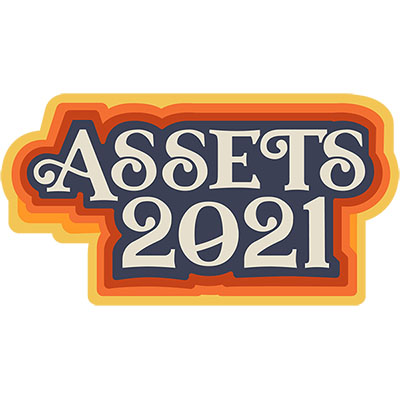
CREATE faculty and alumni scooped up several awards at the ASSETS 2021 conference. Paper Impact Award: Mankoff, Best Paper award: Katharina Reinecke, Best Artifact: scia11y team.